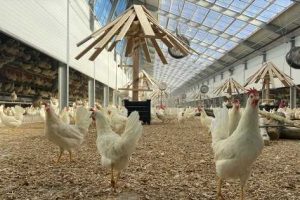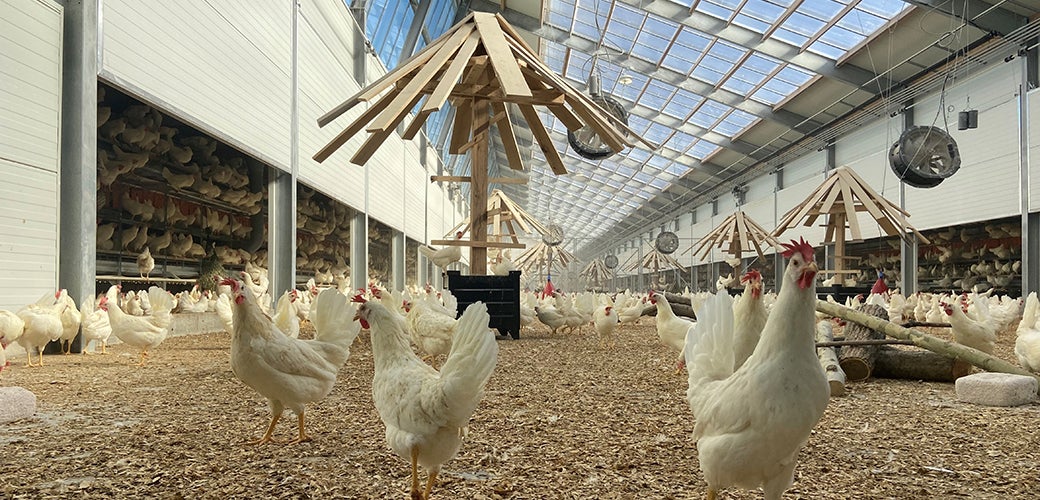Better Eggs Are Coming as Kipster Flocks to the U.S.!



There’s a new egg in town! Kipster, an egg company headquartered in the Netherlands, has launched their new, innovative and more compassionate farming system in the U.S., and they’ve been added to the ASPCA’s Shop With Your Heart Grocery List of more humane products.
What makes this system eggs-traordinary?
The Kipster model is designed with animal welfare as its guiding principle. It’s a sharp contrast to the way the most eggs are currently produced in the U.S., where hens are confined to battery cages so crowded that they cannot even turn around. While birds raised in “cage-free” housing are free to move, the Kipster model goes far beyond that, considering animal welfare, the environment and transparency for consumers. In a Kipster barn:
- Hens are never housed in cages; instead, they are free to move within and between indoor and outdoor spaces.
- Birds are provided with essential materials to perform natural behaviors, like nest boxes for laying their eggs, tree branches and perches for roosting and preening. Birds raised in a Kipster barn are able to dustbathe—this is how chickens keep their feathers clean.
- The roofs have skylights, letting the birds experience natural light every day of the week.
- Hens’ sensitive beaks are never cut or “trimmed,” a routine, painful practice done to birds on commercial egg farms to reduce injuries from feather-pecking each other. This procedure is unnecessary when birds are content and have better things to do!
- Kipster’s model avoids the mainstream egg industry’s routine practice of killing healthy male chicks. Instead, Kipster raises them. For people who choose to eat chicken, this approach offers a more humane and sustainable option.
“Green” eggs and … cam!
Kipster is a model farm that’s better for chickens and the planet. In addition to the commitment to animal welfare, Kipster installs solar panels, purchases carbon credits and employs other sustainable initiatives to offset their environmental footprint. The air filtration systems reduce particles and ammonia, letting the chickens breathe easier and creating a better environment for farm workers and surrounding rural communities.
Kipster is leaning into radical transparency—a much-welcomed alternative to the industrial agriculture industry’s agenda to pass unconstitutional ag-gag laws. Kipster allows consumers to see and understand their novel approach by offering farm tours and launching a livestream webcam.
You can find where Kipster’s eggs are sold on our grocery list.
Interested in learning more about how you can help fight factory farming and fuel a better more compassionate food system? Sign up for our Factory Farming Task Force!
Source: Read Full Article